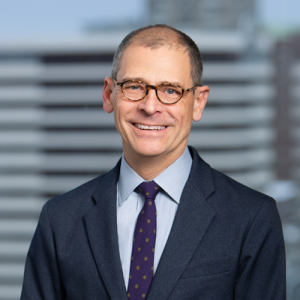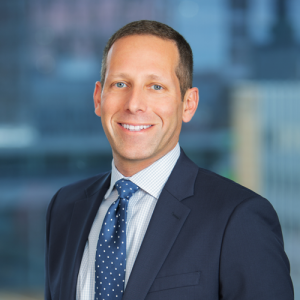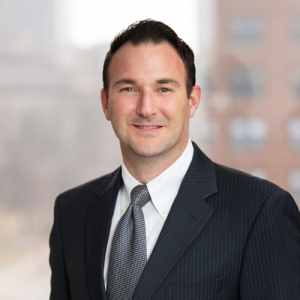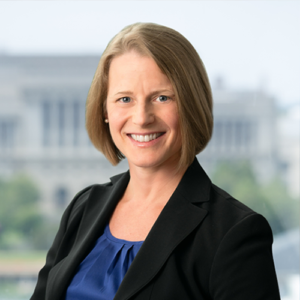On April 27, 2021, the Department of Health and Human Services (“HHS”) released new buprenorphine practice guidelines entitled, Practice Guidelines for the Administration of Buprenorphine for Treating Opioid Use Disorder (“Practice Guidelines”), that remove a longstanding requirement tied to practitioner training that has been cited as a barrier to treating larger numbers of individuals suffering from Opioid Use Disorder (“OUD”). In short, the Practice Guidelines provide an exemption from certain certification requirements of the federal Controlled Substances Act (“CSA”) for certain practitioners who want to obtain a waiver by filing a Notice of Intent as described below to treat up to 30 patients at a time with buprenorphine.
Background
Federal regulation of prescribing buprenorphine, an FDA-approved Schedule III partial opioid agonist, to treat OUD has evolved over the last several decades. The CSA, which was enacted in 1970, required all legitimate handlers of controlled substances—manufacturers, distributors, physicians, pharmacies and researchers, to register with the Drug Enforcement Agency (“DEA”), the agency responsible for enforcement of the CSA. In 1974, Narcotic Addiction Treatment Act amended the CSA and required separate DEA registration by medical practitioners who dispense opioid drugs in the treatment of OUD. In 2000, the Drug Addiction Treatment Act of 2000 (21 U.S.C. § 801 et. seq) (“DATA” or “DATA 2000”) amended the CSA to allow qualified physicians to prescribe approved Schedule III through V medications, including buprenorphine, for OUD treatment without the need to hold a separate registration for this purpose. DATA established a “Waiver Authority for Physicians Who Dispense or Prescribe Certain Narcotic Drugs for Maintenance Treatment or Detoxification Treatment,” under which a physician who met the definition of a “qualifying physician” (note the waiver was limited to physicians only) was required to notify HHS and the Center for Substance Abuse Treatment of his or her intent to begin dispensing or prescribing narcotic drugs. To be valid, the notice had to describe the physician’s qualifying credentials, including compliance with certain training, counseling and related requirements, and the physician had to certify that he or she would not treat more than 30 patients at any one time on such addiction therapy for the first year. However, qualifying physicians were able to treat up to 100 patients in their first year if they met certain requirements, and qualifying physicians treating up to 100 patients and meeting certain requirements could apply to treat up to 275 patients in subsequent years. The Practice Guidelines reduce some of the initial certification requirements under DATA to improve access to treatment for OUD.
Practice Guidelines
Under the new Practice Guidelines, physicians, physician assistants, nurse practitioners, clinical nurse specialists, certified registered nurse anesthetists and certified nurse midwives who are licensed under state law and hold a valid DEA registration (“Practitioners”) can be exempt from the certification requirements related to training, counseling and other ancillary services (i.e., psychosocial services) under DATA 2000 waivers for the purposes of prescribing buprenorphine and other medications that meet the requirements of 21 U.S.C. 823(g)(2)(C) (which requires that narcotic drugs in schedule III, IV or V or combinations of such drugs be approved for use in maintenance or detoxification treatment and not subject to an adverse determination).
Practitioners who meet the above criteria and want to apply for this exemption to obtain a waiver must submit a Notice of Intent (“NOI”) according to current procedures. This must be done prior to treating patients with buprenorphine for OUD. However, if the Practitioner selects a patient limit of 30 in the NOI, the Practitioner will not be required to certify compliance with the training requirements listed in 21 U.S.C. 823(g)(2)(B)(i)-(ii), namely training, counseling or other ancillary services requirements. When operating under this exemption, the 30-patient limit applies regardless of the time spent providing the service. In other words, the 30-patient limit does not increase following the 1-year mark, in a manner similar to the increase allowed for Practitioners who satisfy all the training requirements included in 21 U.S.C. 823(g)(2)(B)(i)-(ii). Practitioners practicing under the exemption are limited to treating 30 patients or less at any one time; however, Practitioners wishing to prescribe above the 30-patient limit must submit an NOI that satisfies all the statutory certification requirements related to training and psychosocial services.
Under the Practice Guidelines, HHS recommends 3 practices around training, education and psychosocial treatment. First, HHS recommends that Practitioners utilize the HHS Buprenorphine Quick Start Guide for education and training around the provision of comprehensive care for patients with OUD. Second, due to the multiple challenges often faced by individuals with substance-use disorder and the high rate of psychiatric comorbidity and evidence that psychosocial treatment may improve outcomes of treatment compliance and retention, Practitioners are encouraged to provide access to psychosocial services, such as counseling, or other ancillary services, or refer as appropriate to licensed behavioral health practitioners in their communities. Third, HHS strongly encourages colleges of medicine and residency training programs for nurses and physician assistants to develop or to continue implementing comprehensive training in substance-use disorder diagnosis and management as a component of their core, required curriculum.
Be aware that Practitioners must still ensure that they are in compliance with all applicable state and federal laws regarding the prescribing, dispensing and administering of these controlled substances. For example, Practitioners must still hold an active license in each state where they will treat patients unless certain exceptions apply. Moreover, there may be state law requirements related to office-based opioid treatment and outpatient opioid treatment that should be considered. Furthermore, state law may also require advanced practice providers to be supervised by, or work in collaboration with, a DEA-registered physician when prescribing medications for the treatment of OUD. In other words, all state law requirements must still be met.
Practical Takeaways
- The Practice Guidelines improve access to treatment of OUD by removing certain previous certification requirements that were perceived as barriers to OUD treatment.
- Practitioners can apply for exemption from the certification requirements related to training, counseling and other ancillary services (i.e., psychosocial services) for the purpose of prescribing Schedule III, IV and V drugs or combinations of such drugs, such as buprenorphine, which are covered under 21 U.S.C. 823(g)(2)(C).
- To apply, Practitioners must submit a NOI to obtain a waiver according to current procedures.
- When operating under this exemption, the 30-patient at any one time limit applies regardless of the time spent providing the service.
- Practitioners must hold an active license in each state where they will treat patients unless certain exceptions apply.
- The exemption does not apply to the prescribing, dispensing or the use of Schedule II medications (such as methadone) for the treatment of OUDs.
- In May, HHS SAMHSA released FAQs About the New Buprenorphine Practice Guidelines.
If you have any questions or would like additional information about this topic, please contact:
- Scott Geboy at (414) 721-0451 or sgeboy@wp.hallrender.com;
- Todd Nova at (414) 721-0464 or tnova@wp.hallrender.com;
- Christopher Eades at (317) 977-1460 or ceades@wp.hallrender.com;
- Amy Poe at (919) 228-2404 or apoe@wp.hallrender.com;
- Lindsey Croasdale at (414) 721-0443 or lcroasdale@wp.hallrender.com; or
- Your primary Hall Render contact.
Hall Render blog posts and articles are intended for informational purposes only. For ethical reasons, Hall Render attorneys cannot—outside of an attorney-client relationship—answer specific questions that would be legal advice.




